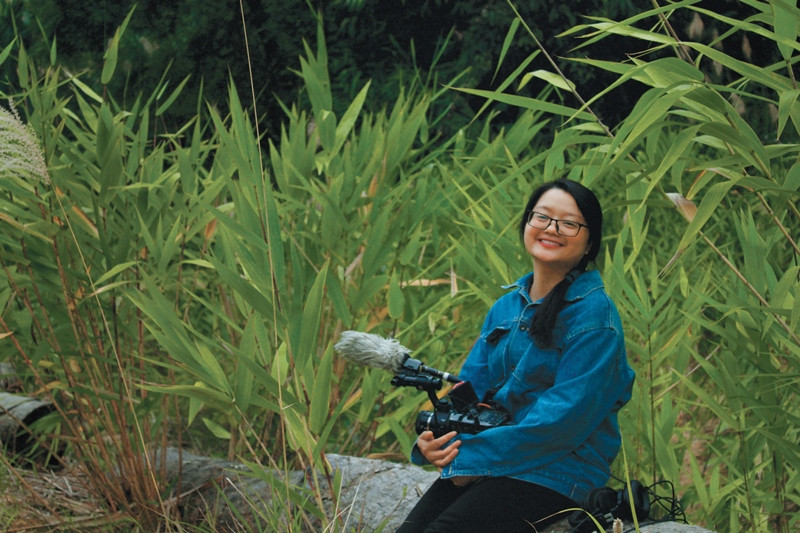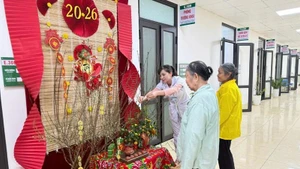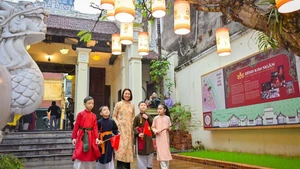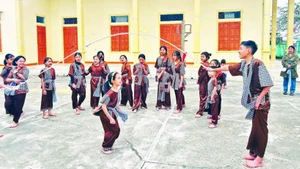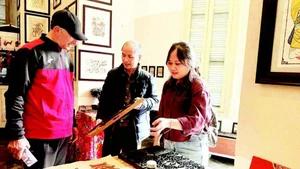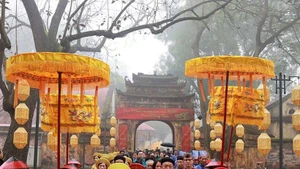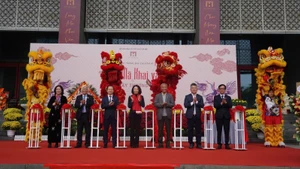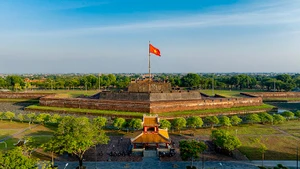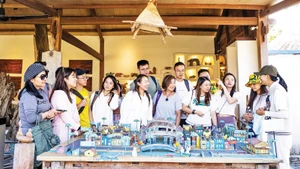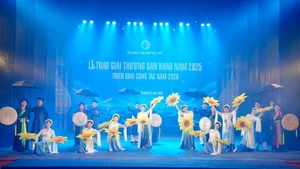Her documentary entitled ‘Children of the Mist’ is the first Vietnamese documentary feature film to be shortlisted for the 2023 Oscars.
Diem, 29, began shooting ‘Children of the Mist’ in 2017 and completed it by the end of 2021. The draft film was shot over three and a half years. She then spent four months translating the H'Mong ethnic language into Vietnamese and English subtitles. The post-production and rough editing of the film took more than six months before being sent to Thailand for retouching, sound effects, and colour correction for an additional two months.
It took Diem five years to complete the 90-minute film. She is the only director and cameraman of ‘Children of the Mist’.
Diem granted an interview to a reporter of Nhan Dan (People) Online Newspaper, to speak about the film.
Question: Can you tell us about the story told in ‘Children in the Mist’?
Answer: The film tells the story of Di, a 13-year-old H’mong ethnic girl living in Sapa town, Lao Cai province. The documentary follows Di from the time when she was a little girl to adulthood, through which I want to talk about the fear, loneliness, and loss, when a child has to grow up, and how her childhood disappears.
I met Di by chance. When I went to Sapa, I lived with Di's family. Di invited me to go to the hillsides with her friends. At Di’s age, I also had friends. But when I entered the 9th grade, all of my friends got married. I didn’t understand why my friends got married so early.
Di's childhood will pass as quickly as mine. Therefore, I want to make a film that captures the innocence and purity of childhood.
Is ‘Children of the mist’ really a pure story? I remember one audience member exclaiming that the film is quite violent.
That's right. In the beginning, I saw Di's childhood as pure. But when she grew older, pressures of traditional and modern values came in. Those pressures stole her childhood away.
As an ethnic minority girl, Di has a lot of pressure. Even going to school and taking exams in Vietnamese is stressful, because Di grew up speaking the Hmong language.
In 2018, I witnessed Di struggle in the traditional “wife-pulling” tradition. It was a violent scene. This event is a milestone that marked Di's becoming a woman from childhood. She had to explain to everyone why she didn’t want to get married and why she wanted to continue her studies.
Previously, I thought the “wife-pulling” custom was just a fairy tale. But after I met Di and her cousins - who have had the experience of the custom, most of them were very scared. It is a nightmare for them.
Why did you name the movie ‘Children of the Mist’?
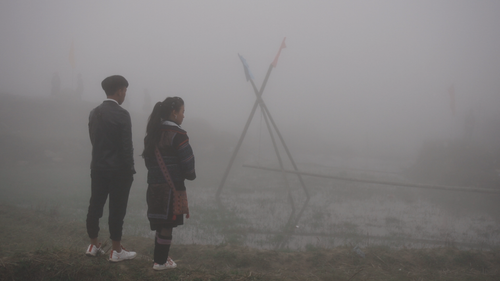 |
| A scene in the documentary film “Children of the Mist”. (Photo courtesy from filmmakers) |
This name was contributed by Hieu - my advisor. But that name reminds me of my childhood fear of fog.
I lived in an earthen house amidst the forest. The road to my school is very small and narrow. In the winter, fog surrounded my house. When I stepped out of the house, the road to school disappeared. I thought in front of me was a white wall that I couldn't walk through. Who knows what lies ahead? I missed school for 4 or 5 days and lied to my parents that I'm sick. I couldn’t speak out to them that I'm afraid of fog.
But my parents kept forcing me to go back to school, I still had to step out of the house. I plucked up my courage to take a step, telling myself to just go forward and I could see the road.
What do you think about the lives of girls from ethnic minority groups?
When I was filming and living with Di's family, I realised that learning Vietnamese is very difficult for a H'mong ethnic girl. I think that is the common difficulty of ethnic children like me or Di.
Di even told me that she couldn’t learn and she felt that she couldn’t do it. Girls like Di also have to face cultural and economic barriers, such as hunger and early marriage.
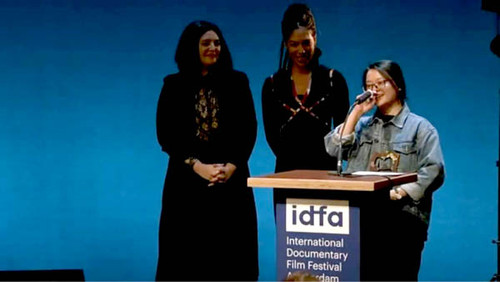 |
| Ha Le Diem speaking at the International Documentary Film Festival in Amsterdam. |
Can you share with us the difficulties facing the production of the film?
When I started working, I didn't think too far. I just thought that if I lacked something, I would borrow it. If I didn't know something, I would ask others about it.
It didn’t cost me too much money to travel, stay, eat and drink during the filming. I stayed at Di's house, and her parents took no money for accommodation.
The most expensive is the post-production and editing of the film
When you started making the documentary, did you set any expectations for your career or income?
If I want to be rich, I will follow professions that make money. But what I’m interested in is making documentaries.
I realise that a documentary always gives people an opportunity to create a dialogue. I always find something new in a film, even after watching it for the third time.
After graduating, I got a job with a good salary. But I realised that no matter how much money I earn, I will spend to the last penny. With less money, I just live a more modest life.
It's better to make movies and live with less money. By making movies, I will be able to listen to others, understand and live in their world. When I live in everyone's world, I feel like I'm living another life.
I realise that a documentary always gives people an opportunity to create a dialogue. I always find something new in a film, even after watching it for the third time.
To be a documentary director, is it easier to be female or male, in your opinion?
Female is easier! When foreign friends asked me if there are many female documentary directors in Vietnam and I replied with a “yes”, they were very surprised.
Of course, female directors also have certain difficulties. Like I'm not strong enough to hold a 4 - 5 kg camcorder. But in return, the female director is very hard-working and meticulous.
Women also find it easier to express their affection than men, which makes people more comfortable to talk to. That is the advantage of female directors while working on documentaries.
Being in the top 15 nominations for the Academy Award for Best Documentary Feature is an unprecedented event in Vietnam. How do you feel when your film is introduced to the world?
I’m very happy and proud. After my documentary was shown at film festivals abroad, I gained a little more confidence. I thought to myself that if I did filmmaking or filming, I can do it well.
Filmmaking helps me grow both personally and professionally. Because I learned from the surrounding life, from Di and Di's family. What I have learnt will help me to continue making new movies.
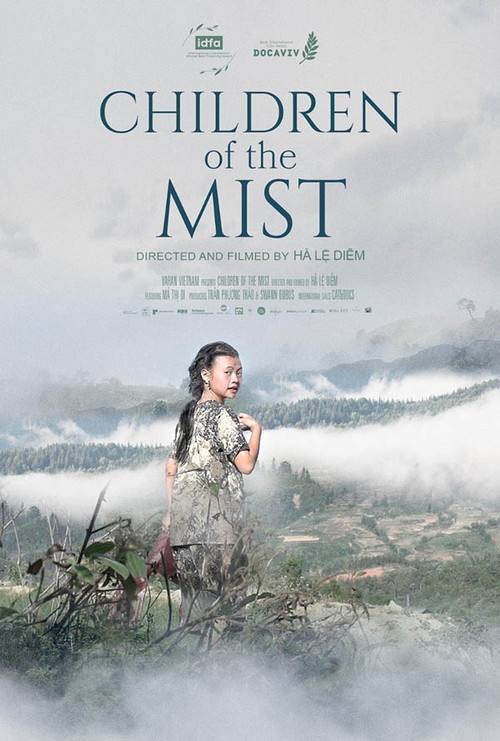 |
Children of the Mist’ has won more than 30 international prizes, including the Best Director at the Amsterdam Film Festival, the Best Southeast Asian Documentary at Balimakarya Film Festival, and the Grand Prix at the Educational Film Festival in France. The film has been screened in the US, Taiwan (China), and Singapore.
It will hit the big screen in Vietnam on March 17 at 16 cinemas across the country. Ha Le Diem will donate 10% of the film’s revenue to support disadvantaged children in Lao Cai province.
